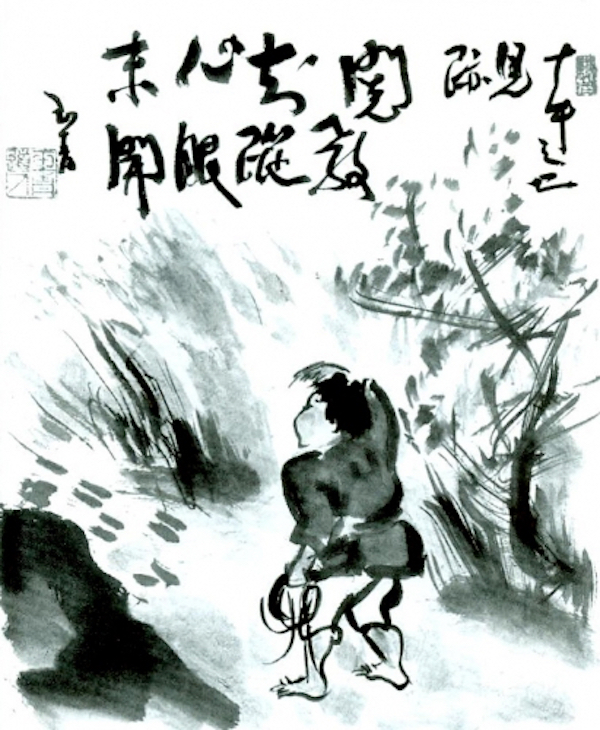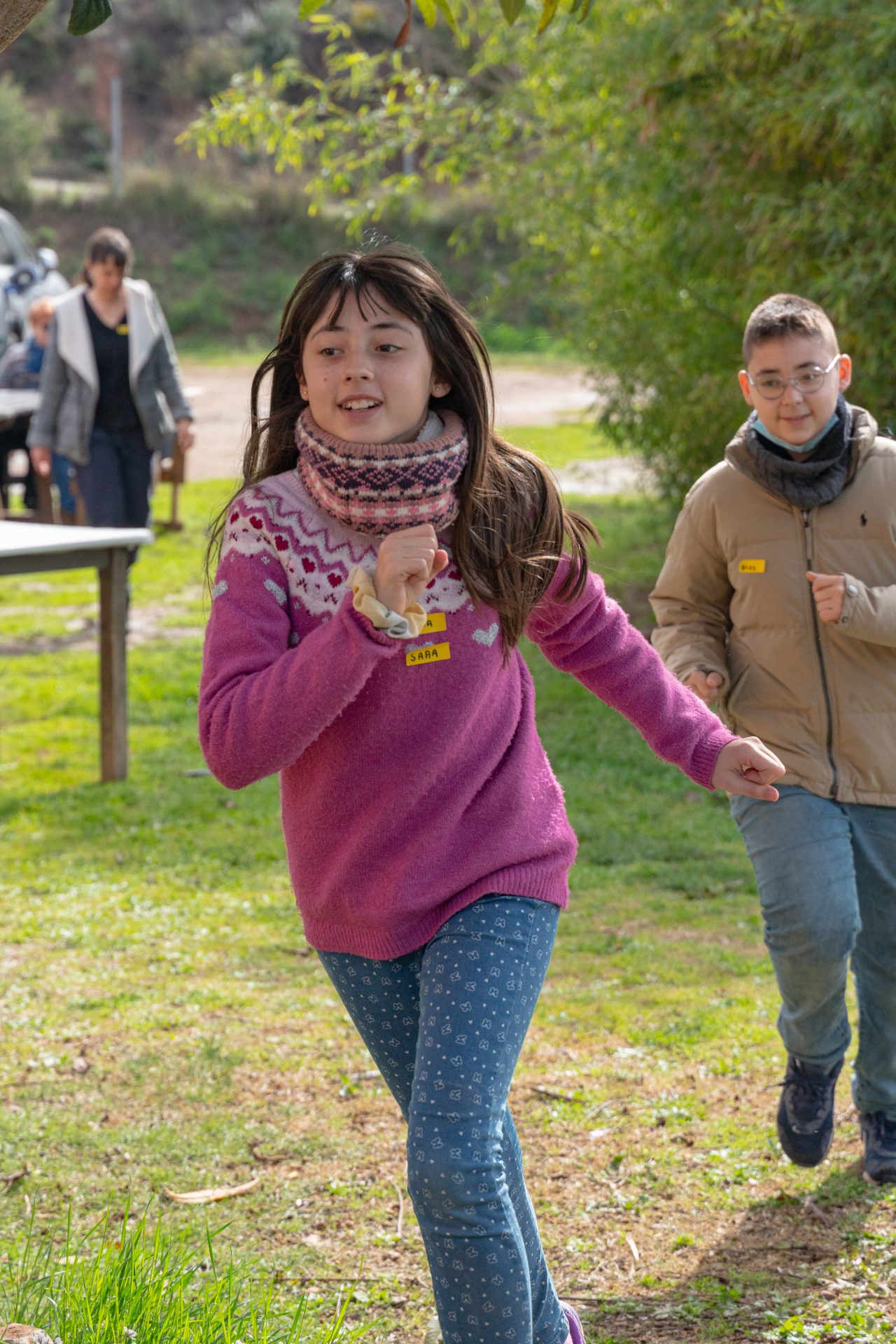Finding the Ox’s Footprints
Leaving home, resistance, and love The post Finding the Ox’s Footprints appeared first on Tricycle: The Buddhist Review.

I know someone who joined the San Francisco Zen Center as a young woman. This was in the very early 1970s, early on for a convert to Zen in the West, and her parents were terrified she [had] joined a cult. Today most scholars of religions would tell you a cult is basically a religion you don’t like. But in the 1970s there was an explosion of minority religious groups, and it turned out it wasn’t hard to get a lot of people terrified about anything that wasn’t mainstream—and it’s true that a few of these groups were abusive.
In this case, the family hired a deprogrammer to have her kidnapped. A sad story. But kidnapping and deprogramming of people who joined minority religious groups was something of a cottage industry at the time.
There was a brief moment of confrontation in which her parents presented themselves and told her that they were responsible for her abduction. This was to provide the rope for the victim to grasp in the midst of some fairly brutal coming days. It was part of the method [of] their madness, bringing the person home. And in this case, this is where things started going off script. She offered them a deal. She’d go through the deprogramming voluntarily. But at the end, if she decided to return to the Zen center, they would have to honor her decision.
Reluctantly they agreed. She did the program. It was torturous. And when it was over, she returned to the center. Today she is a venerated elder within the Zen community.
When we notice within our bones that something is wrong, a sense of dislocation can ensue and can unfold in any number of ways—not least as dislocation from the intimacy of family and close friends. There are reasons that that young Zen practitioner’s family was terrified. It wasn’t just the cult scare of the time; they were being presented with a fundamental challenge to the world they lived in. This, it turns out, is an old story. In the Christian allegory Pilgrim’s Progress, the protagonist, whose name is Christian, has a vision of a terrible apocalypse and wishes to embark on a journey to his salvation. He tells his family, his spouse, and his children. They don’t believe him, so he embarks by himself.
When we find ourselves aware of the ox and our yearning it can become all-consuming. I’ve seen an argument that such abandonment is not very Christian. The challenge, in that view, would’ve been to find a way to bring his family along. I think this is a real point. In fact, there’s a sequel that includes his family. There is a parallel in the Buddhist world, too—the current feminist critique of Gautama Siddhartha’s abandonment of his wife and child along with his responsibilities as a prince. In pursuit of the true, one can leave a lot of hurt in one’s wake.
How do we throw ourselves wholeheartedly into the way when there are people who depend on us?
Another story comes to mind. I was talking with a clerk in a large department store. It turned out he had been a Catholic monk for more than twenty years. He left because his mother was sick and had few resources, and if he didn’t take care of her, she probably would have been on the streets. What I found particularly compelling in our brief conversation was that, while the pain of leaving the monastery was clearly on his heart, it was also clear he’d made the right decision. And, most important, he seemed to feel he was still fully engaged in the great matter.
The Zen teacher Grace Schireson talks about once being confronted for being married and a Zen priest. When asked how she squared that circle she replied, “I keep all my vows.” If a koan is an assertion about, and invitation into, the intimate way, I keep all my vows is definitely a koan.
We shouldn’t be hasty though to dismiss monasticism. In traditional Buddhism, entering the way means “leaving home.” In fact, the original Buddhist community was a company of monks. Later a company of monks and nuns. If you couldn’t or wouldn’t take monastic vows, the best you really could do was support those who did and hope for a more propitious birth next time around.
But the mere fact of becoming a monk or nun doesn’t guarantee anything. I’ve known more than one sour monk. People who after years of crushing their lives, at least as I see it, find solace in belittling “worldlings,” those who didn’t throw it all away. It’s like the famous story of the two Zen monks on pilgrimage who meet a young woman at a ford in a river. One carries her across and then sets her down safe on the farther shore. They continue on their way. Finally, hours later, the second monk says, “You violated the rule against touching a woman.” The first monk responds, “I put her down on the shore. You still seem to be carrying her.”
Sadly, I’ve met a few more of the complaining monks than the ones who won the greater victory. This prompts a crucial question: What is grasping? In the fundamental matter of the heart, what is clinging really? And how do we meet it?
In pursuit of the true, one can leave a lot of hurt in one’s wake.
It is easy to fall into disdain for people following a different way. And every choice comes with a bundle of consequences, some negative. The householder path is filled with distractions, many critically important. The monastic path, though sometimes quieter, is filled with problems as well.
In my view, the critique of the pilgrim’s abandonment of his family is right. He chose to leave his family who needed him, and there would be consequences. There are always consequences to our decisions and actions. And good intentions are not enough. The critique of Gautama Siddhartha abandoning his family and obligations—that’s right too. There would be cascades of consequences. In this world we learn no matter what we do, there will be negative consequences, whatever the good that might also come out of it.
And at the same time, Christian’s headlong pursuit of salvation is right. The hints we find in the ox’s footprints are invitations that we would be foolish to ignore. The person who gives it all up and becomes a monastic is right. Whatever the cost, there is some profound need within our human hearts that must be honored. Or, well, there will be consequences. Siddhartha’s abandonment of his family and embarking on the way is right. It led to the possibility of healing for a whole world.
It is worth noting these are both stories. And rough edges quite often get polished in stories. As I noted, eventually Christian’s family are all saved, too. And the Buddha’s family all join into his great project. In Job after the worst that can happen, Job then gets a new family.
The key thing is to seek the deeper point these stories are trying to draw out. Does your urge to leave your family, whatever that means in your case, cover over a resistance you’ve never dared to look at? Or do you allow certain culturally normative obligations to hold you in place more tightly, or for longer, than they need to, displacing your heart’s yearning to follow a spiritual path? These are the real questions.
When I started practicing with a Zen center, I didn’t tell my family. I wasn’t living at home, and I didn’t have to deal with the emotional consequences. However, when I decided to move into the temple in San Francisco it became inescapable. My father thought all religion was hokum and only worried I was being taken in. But it was much harder on my mother and grandmother and my auntie, who had a parental place in my heart. Each of them addressed the issue in their own way. Auntie simply pretended nothing was going on. My mother worried but said nothing. My grandmother sighed and said she’d pray for me. And did.
I was haunted by their wounding and worry. What they didn’t do was cut me off. What I didn’t do was abandon them in my heart even as I stepped forward into the spiritual discipline that I felt might actually help.
For every deeper truth of our lives, we will find a lot of counterfeits. In Buddhism the fundamental analysis is that most of our human suffering comes from grasping after that which is passing. In the grossest of senses, one can call that the world. In each moment the world and every part of it is dying. One’s family is not a bad placeholder for the world and one’s connections to it.
But if the solution were simply to not care, well, that would be a pretty sad thing. And that’s not what this path is about. The real question is, how do we surrender our unhealthy grasping? The holding that is a fiction. The grasp that denies the realities of the world and of our hearts. And how do we do it in the situation in which we find ourselves? Not some imaginary place, but this place.
For some, this might very well lead to some cloister. It might lead to trips to India, to entering monasteries—Myoshinji in Kyoto, or Tassajara inland from Big Sur, or St. Catherine’s in the Sinai, or the Abbey of Our Lady of Gethsemani outside of Louisville. The list is long, and any of these might be a right choice for you.
Eihei Dogen wrote that we achieve awakening the moment we leave home and embrace the precepts. And reading him, it is easy to assume he isn’t being metaphorical. There’s a lot in the traditional literature about how the robe and the bowl you receive in the ceremony need to be yours, not borrowed. You will be using them. Lots of pretty literal stuff around that home-leaving.
He’s absolutely correct. And yet, there’s something much deeper than shaving a head or entering a monastery. In our time and in our place, we do not have to travel the world to find the gold that has always been buried within our hearts.
The traps are right here. And we will always take them with us, wherever we go. And the keys to our freedom can be found right here, too.
There’s a wonderful cartoon where the guru says to the disciple, “You’ve now completed your training. You have only one more test.” The next panel shows the disciple at home at a Thanksgiving dinner.
What is love, really?
And what is it that you really need to let go of?
A question to revisit every step of the intimate way.
♦
From The Intimate Way of Zen: Effort, Surrender, and Awakening on the Spiritual Journey, by James Ishmael Ford © 2024. Excerpted with permission of Shambhala Publications.

 Troov
Troov 
































